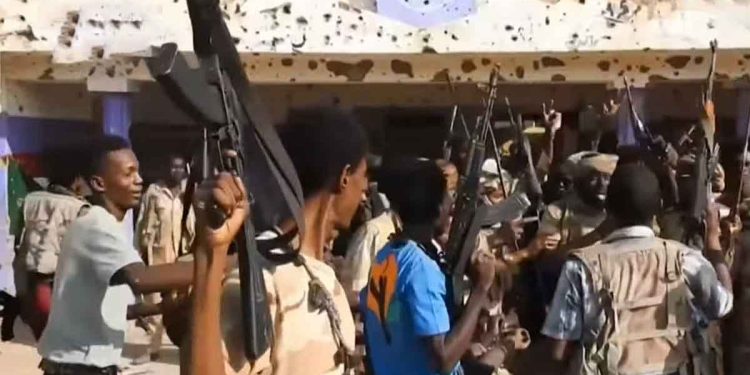In a further escalation of human rights violations in Sudan’s conflict zones, the Rapid Support Forces (RSF) have abducted six healthcare professionals in the city of El Fasher, North Darfur State. According to the independent Sudanese Doctors’ Network, the victims include four doctors, a pharmacist, and a nurse.
The network stated that the RSF demanded a ransom of 100 million Sudanese pounds (approximately USD 29) for the release of each doctor, effectively extorting the families of the kidnapped individuals.
The abduction of medical personnel and the extortion of their families constitutes a blatant breach of international humanitarian law, particularly the Geneva Conventions. Common Article 3 explicitly prohibits “unlawful confinement, the taking of hostages, and cruel treatment of civilians and persons not actively engaged in hostilities”.
Targeting healthcare workers also contravenes the spirit of special protection afforded under Article 24 of the Fourth Geneva Convention, which obliges parties to respect and safeguard medical staff during armed conflicts.
This incident forms part of a recurring pattern of violations by armed groups against medical and humanitarian sectors. Hospitals and medical staff have repeatedly been subjected to threats, attacks, and looting amid the near-total collapse of Sudan’s healthcare system.
Such actions appear to be a deliberate strategy to dismantle essential services and force civilian submission through deprivation of care, a practice that falls under the use of starvation and suffering as methods of warfare, which are categorised as war crimes under the Rome Statute of the International Criminal Court.
The abduction in El Fasher comes amid a broader humanitarian catastrophe in Darfur, where attacks on civilians have persisted for months. The siege of the city has cut off humanitarian supplies and displaced tens of thousands in recent days. In the absence of any meaningful accountability mechanisms, the cycle of impunity continues to expand, enabling further crimes against civilians and humanitarian workers.
The kidnapping of doctors in exchange for ransom represents a dual violation of the rights to life, liberty, and personal security. It strikes at the heart of the humanitarian neutrality that underpins the work of medical teams in times of conflict. It also underscores the near-total collapse of the rule of law in conflict areas and the failure of international protection frameworks.
Given these alarming developments, there is an urgent need to activate international accountability mechanisms and ensure the protection of humanitarian and medical personnel, who remain the last lifeline in war zones. Silence in the face of such crimes is not neutrality; it normalises criminality and renders international humanitarian law a hollow promise in the face of brute force.


























